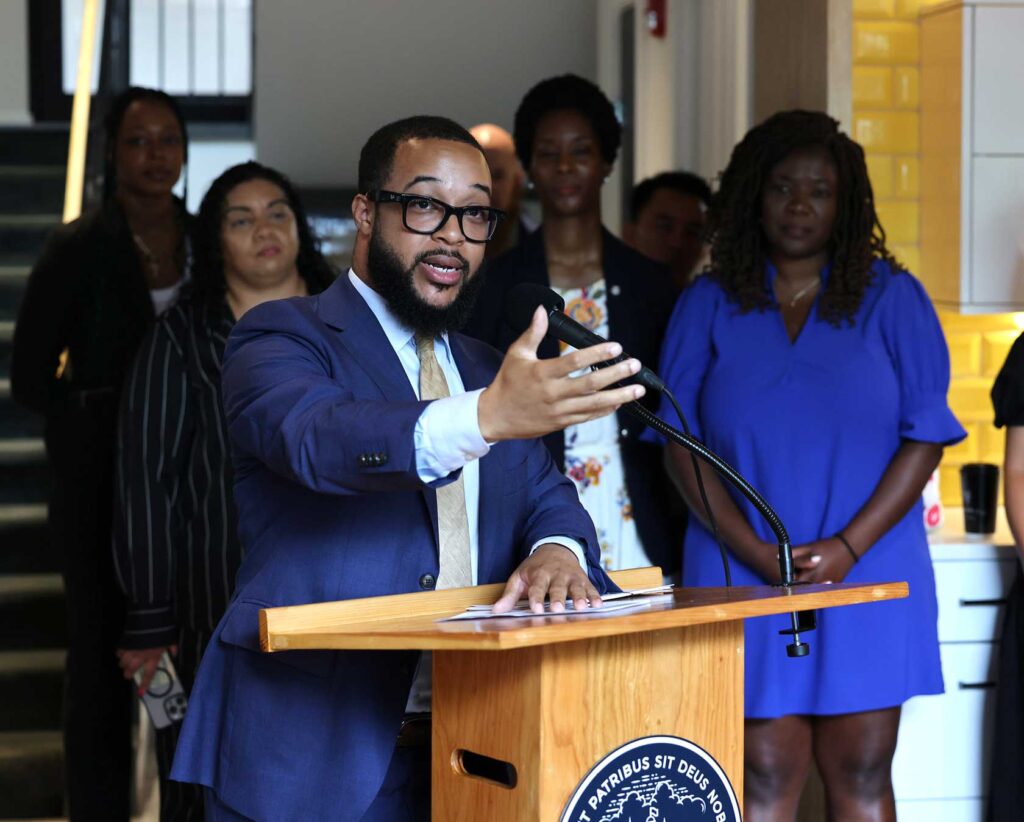
Banner Business Sponsored by The Ujima Project
The City of Boston recently selected grant recipients for the Supplying Capital and Leveraging Education (SCALE) program, a technical assistance program designed for small businesses in specific industries.
Participating small, minority-owned and women-owned businesses receive six months of industry-specific technical assistance and grant funding of up to $200,000.
The grant program funding is provided through the American Rescue Plan Act (ARPA) and is anticipated to total $6.5 million.
The purpose of the program is to build businesses’ capacity to more effectively bid on, win and perform public contracts, specifically for the City of Boston.
It also focuses on industry categories that represent a large share of the city’s public contracts: construction general contracting, construction trade work, design and architectural, food and dining services and snow removal and landscaping.
One of the grant recipients for the SCALE program is Shonté Davidson. She is a co-founder of the Better Together Brain Trust, a climate focused electrical contractor. They are in the construction cohort of the program.

Grant recipient,Shanté Davidson is the co-founder of the Better Together Brain Trust. PHOTO: EVERSOURCE
She said SCALE has been fantastic for her and co-founder Nicole Voudren.
“It’s really been like a perfect pairing for us, because we [are] able to sit in on the classes and gain the knowledge, but then we also have someone that’s assigned to us, our mentor,” she said. “We meet with him weekly, individually and collectively as a team. …It really allows us to put into practice immediately what we’re learning in class.”
Davidson decided to apply to SCALE because she wanted her business to scale up.
“We knew that if we wanted to go and move from a startup to a scale-up, we needed to expand our operational capacity, grow our market reach and do it in a way that fosters economic equity. That’s really what attracted us to the grant program,” she said.
She also shared the lessons learned from SCALE that she and Voudren have been able to apply immediately: that relationships and social capital truly matter.
“It’s just become completely apparent that having strong operations that are built on strong governance and making sure you have strong and deep relationships has really mattered. This program is providing us the capital, whether that’s monetary capital, the social capital, some political capital, and then some business readiness, and even what type of capital that [we] would fall into to really make sure that we can grow from a startup to a scale-up,” she said.
The grant program is a collaboration with the BDC Community Capital Corporation, which will manage and oversee its administration in partnership with technical assistance providers.
Now that grant recipients have been selected, BDC Community Capital Corporation and the technical assistance team will work with SCALE participants to develop a plan for utilizing the funding. The goal is to address key challenges that hinder their ability to secure larger institutional contracts or to identify investments that can help their businesses scale.
Supplier Diversity Director for the City of Boston Andrea Caruth spoke about how her department, the Economic Opportunity cabinet, helped to create the SCALE program.
Their office seeks to increase economic opportunity by evaluating the policies and processes in place when it comes to doing business in the city and how those barriers can be lowered for small businesses, especially for local- and minority- and women-owned businesses.
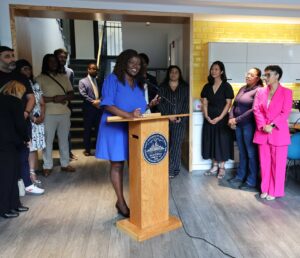
City Council President Ruthzee Louijeune congratulates the small business owners at Nicoya Construction. PHOTO: JOHN WILCOX/MAYOR’S OFFICE
Caruth said that the process of educating and certifying small and-women owned businesses led to the creation of the SCALE program.
“It’s a very remarkable program that came through in the midst of ARPA funding, and it allows for small businesses to scale up and to provide the capital that can be very difficult, usually to get, in order to make it to the next level as a business. We created this program to allow for companies to not only receive funding but also receive technical assistance in order to see how to use that funding in a way to create sustainable change and impact for their business,” she said.
The program includes technical assistance providers, who focus on capacity-building activities, education and training that is specific to the type of work each business performs.
Initiative for a Competitive Inner City CEO Steve Grossman is one of the technical assistance providers for Construction — Tradeswork and General Contracting. He said he was delighted that the companies in the program he is helping are making tremendous progress.
“You can just see the energy, the optimism, the sense that this is a transformative moment for these companies in their ability to do business, create jobs and create generational wealth for companies that have been left out and left behind for so long,” Grossman said.
He spoke about why he feels it is important to have programs like SCALE to help diverse-owned businesses.
“If you look at the numbers, you know diverse-owned businesses…have had a very difficult time competing for contracts. The contracts were generally awarded to larger companies…to do business with the city, the state or the public sector. It’s complicated,” he said.
“The requirements are pretty intense, and a lot of small businesses — they know how to build a house, they know how to repair a house, they know how to do electrical work. They’re experts in that, but the process of completing an RFP and competing successfully for a contract is not so easy to know. So, the knowledge that we have been transmitting to them during this program is going to make them far more competitive,” he added.
George Harris, president of Calyptus Consulting Group, is another technical assistance provider for Landscaping and Architecture. Harris also talked about how beneficial the program is to them, as far as giving them a helping hand to navigate the system of securing larger institutional contracts and investments that can help their businesses scale up.
“The thing that I would say is different with this program than other programs around the country…is the funding. Many of these programs that are out there, they provide training, mentoring, and maybe advice here and there, but they don’t provide funding. …The City of Boston is going to help these companies do and fund,” he said.
“They’re going to fund marketing support, they’re going to fund computers, they’re going to fund software for the architects to use. They’re going to fund websites. They’re going to fund certifications. They need to bid and compete. So, you see how valuable that is for those companies actually getting money to secure those resources. They’re going to be better able to perform, rather than these other programs,” he added.
Davidson said she hopes there will be another program like SCALE in the future.
“It fosters economic equity. For far too long, we’ve seen contracts go to the same cast of companies, and this really provides us an opportunity to foster economic equity, helping new businesses [with] new contracts, helping to make sure that we’re working in neighborhoods we look like,” she said. “As we grow, we can look to the community to help bring them into a new industry, to continue to just grow this marketplace, and make sure that climate continues to be a number one sector and a world draw for folks who want to come into the industry.”

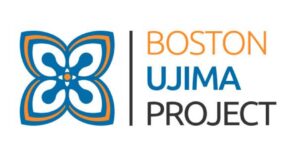


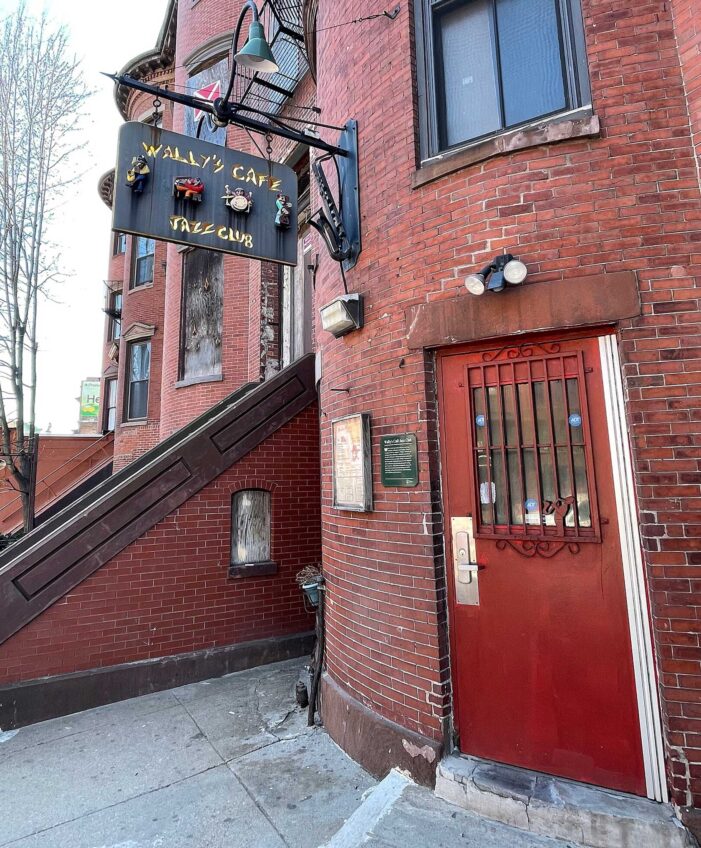
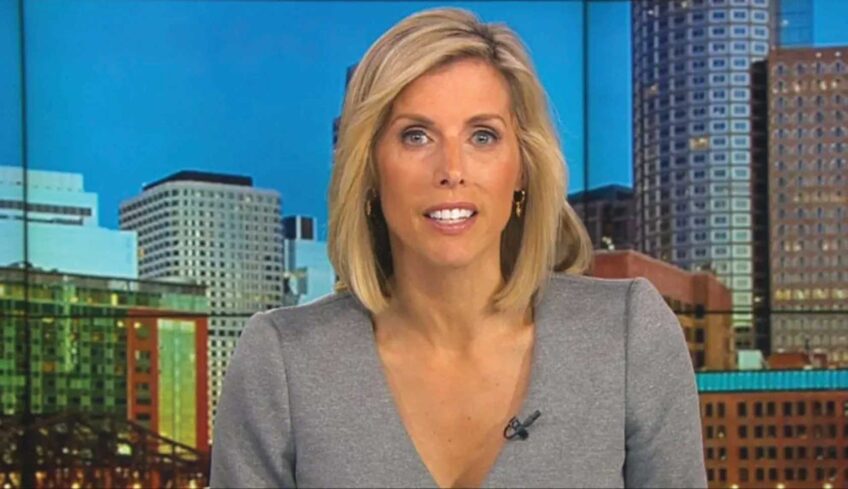
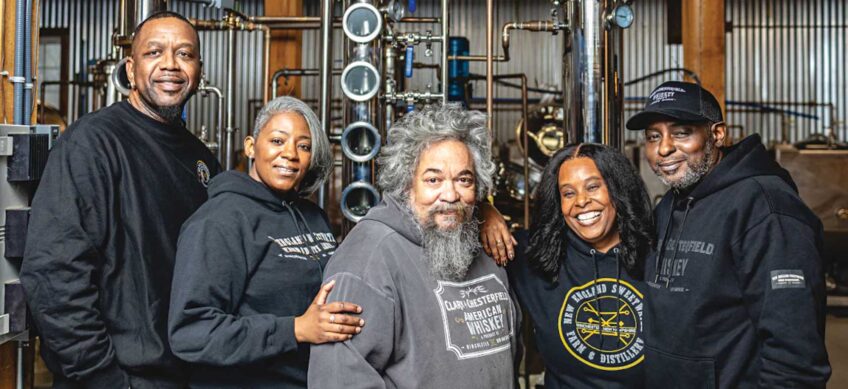
Leave a Reply
You must be logged in to post a comment.